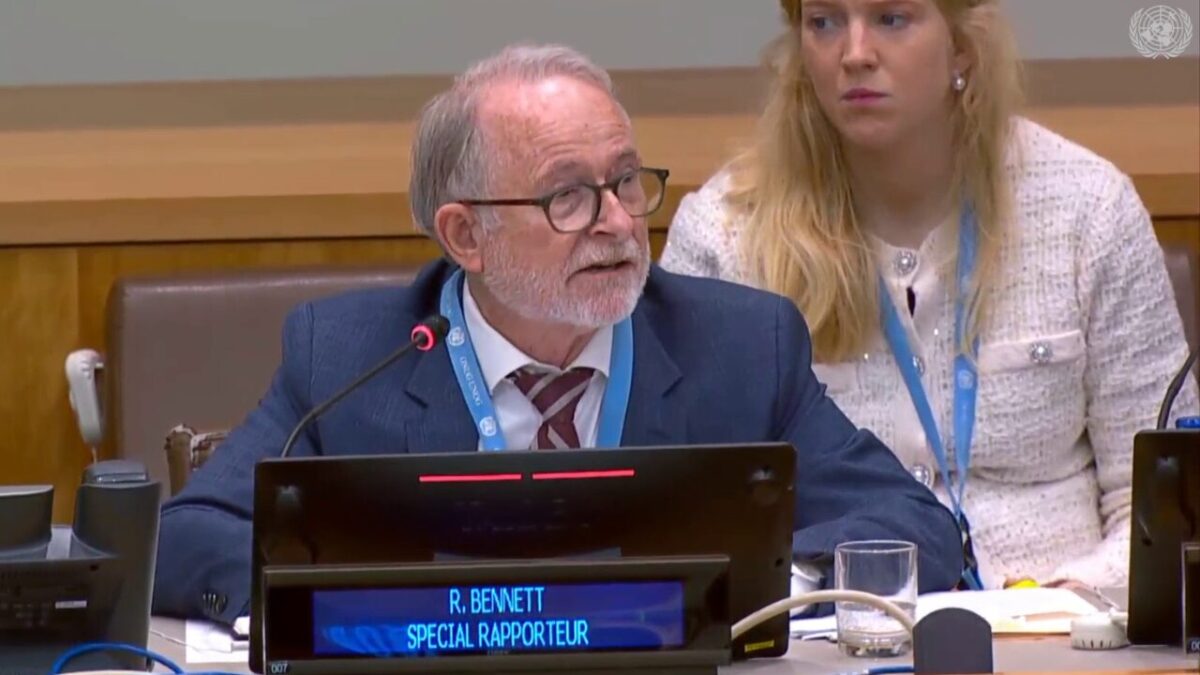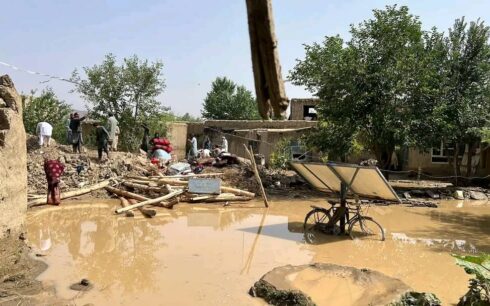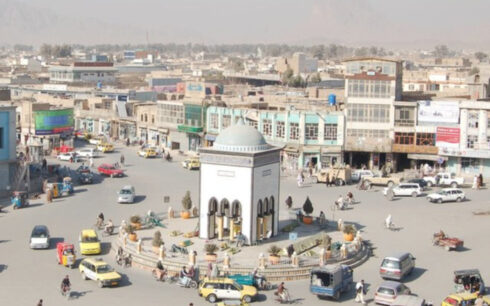NEW YORK – Richard Bennett, the United Nations Special Rapporteur on the situation of human rights in Afghanistan, on Friday called on the international community to develop and implement a comprehensive, human rights-centered action plan to address the escalating crisis.
“The absence of a unified, forceful response from the international community has emboldened the Taliban,” Bennett stated, noting that their policies have plunged Afghanistan into a state of systematic gender oppression that many Afghans now describe as “gender apartheid.”
In his latest report to the UN General Assembly, Bennett outlined the dire conditions faced by women and girls in Afghanistan, underscoring the generational impacts of Taliban rule.
He commended recent declarations by the UN’s Committee on the Elimination of Discrimination Against Women (CEDAW) and the High Commissioner for Human Rights in support of codifying the concept of “gender apartheid” in international law.
Bennett expressed particular concern about the Taliban’s new “vice and virtue” law, formalized in August, which he says has institutionalized a growing set of restrictions that disproportionately violate the rights of women and girls.
“This law affects all levels of society, restricting women and girls from participating in public life,” he said.
The Special Rapporteur’s address to the General Assembly highlighted a shrinking civic space in Afghanistan, with ongoing threats to journalists, minority groups, former government officials, security personnel, and legal professionals.
He cited credible reports of sexual violence and an uptick in corporal and capital punishments. “Justice, equality, and the rule of law are being systematically undermined,” Bennett said.
Economic and social rights are also suffering amid a severe humanitarian crisis, worsened by Taliban policies. Bennett noted that children, widows, people with disabilities, LGBTQ individuals, and those facing multiple forms of discrimination are among the most vulnerable.
He called for increased funding and support for Afghan civil society and humanitarian efforts to mitigate the crisis.
Bennett urged the Taliban to reverse its repressive policies and reinstate basic human rights, and he pressed the international community to take a coordinated, multifaceted approach to support the Afghan people.
He recommended that states refrain from normalizing relations with the Taliban until tangible improvements in human rights are made, with clear pathways to justice and accountability.
“Here in New York, the UN and its member states must take action, leveraging the Women, Peace, and Security agenda, as well as the independent assessment on Afghanistan,” Bennett said.
He called on the Security Council and the General Assembly to use their authority to support a peaceful, inclusive, and rights-respecting future for Afghanistan.
According to UN statement, as Afghanistan enters its fourth year under Taliban rule, the human rights crisis in the country, especially for women and girls, continues to worsen.





